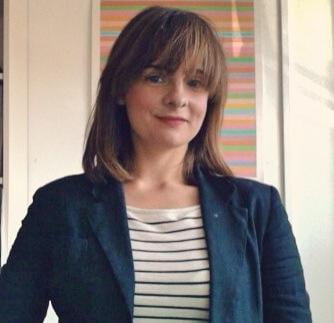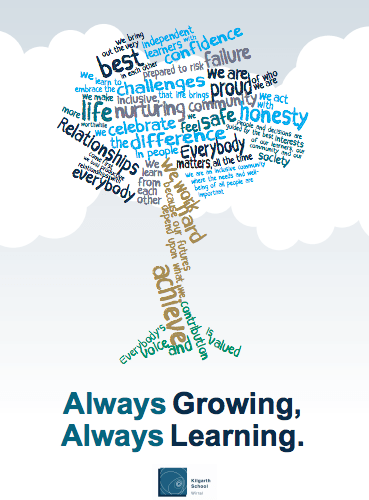
Alice Jones is a Senior Lecturer, and Director of the Unit of School and Family Studies. Her work focuses on understanding how students with behavioural difficulties can achieve their potential in school, as well as developing methods of promoting social and academic inclusion.
Here, she provides an update on an on-going project that explores one school’s aim to learn without sanctions.
Spring was a busy term for the Unit of School and Family Studies. Two of our current PhD students (Hannah Smith and Dawn Rose) were offered exciting postdoctoral positions, and another (Guilherme Wendt) will represent Goldsmiths at the World Congress of Psychology in Japan in July after being awarded an ‘Emerging Psychologist’ award. Dawn Rose, one of our PhD students, also received a commendation from the Warden in Goldsmiths first Public Engagement Awards for her role in The Happiness Project, a collaboration between theatre, scientists and school students put on at the Edinburgh Festival and the Camden Roundhouse last year.
We’re currently working with schools across the UK, on a range of projects exploring mental health, bullying and behaviour; but we’re particularly interested in working with schools to develop research projects that are timely and contribute to the development of evidence-based practice.
Translational research in action
We can’t carry out the sort of work that we do without working closely with teachers, educational psychologists and other professionals working in schools. Our previous work (Frederickson, Jones, Warren, Deakes & Allen, 2013; authored by academic researchers, educational psychologists and teachers) sets out how we can combine teacher feedback with the most appropriate available research to help provide solutions to school problems. Working in such a way means that we are able to translate the available research into practice quickly, while also carrying out work that we can feed back into that evidence-base.
This project examined the existing research about the differing profiles of social and emotional abilities of children with severe behavioural difficulties, and used it to think about why existing practice wasn’t as effective as it could be, and how we might improve things. For example, some school-based initiatives for behavourial difficulties focus on empathy, but if a child has difficulties empathizing with others (Jones, Happe, Gilbert, Burnett & Viding, 2010), then that strategy might be rather limited in its effectiveness. Similarly, it is important to understand that not all children are motivated by the same outcome – not all students seek social approval and friendship (Warren, Jones & Frederickson, 2014). One group of young people that we are particularly interested in are commonly described as having ‘limited prosocial emotions’ (DSM-V), or ‘callous-unemotional traits’ (Frick, Ray, Thornton & Kahn, 2014). In our 2013 study, we developed and examined a new method of working with students based on our profiling of their abilities and difficulties. After a year, we were able to demonstrate behavioural improvement alongside reductions in fixed-term exclusions from the school and a positive acceptance of the programme by school staff.
Can schools work without sanctions? What we’re doing now
Our current work is interested in how far school sanctions really influence behaviour, and whether schools can exist without them. Working with schools for children with social, emotional and mental health difficulties allowed us insight into how effective traditional methods of classroom behaviour management are for children who find being in school tougher than most. We partnered up with outstanding Kilgarth School in Birkenhead, a secondary school catering for the needs of students with social, emotional and mental health difficulties (a range of difficulties previously labeled as social, emotional and behavioural difficulties). Our collaboration was covered by The Telegraph last year, and you can read about it here. Kilgarth are a brilliant model of reaching out to use research, but also giving back through research and training opportunities for educational and other agencies, including the police and prison service.

For some children punishment, or more commonly, the threat of punishment is ineffective. Young children who are considered to have a fearless temperament are typically resistant to punishment (Fanti, Panayiotou, Lazarou, Michael & Georgiou, 2016). Similarly, children who have behavioural problems and difficulties with empathy are similarly uninfluenced by sanctions – time out has little effect on their behaviour, and these children don’t seem to be made as sorry or upset by strategies like time-out (Hawes & Dadds, 2005; Miller et al., 2014). More recently, teachers have also reported an association between callous-unemotional traits and insensitivity to punishment (Allen, Morris & Chhoa, 2016). In contrast, it may be the case that certain types of rewards are a useful motivating factor in developing desired behaviour.
We worked with Kilgarth School to develop a whole-school system that was built on the available research relevant to their students, and that met the needs of the students, teachers, governors and everyone else involved with the school. The result is a school system that works to positively exploit and develop strengths. Students report that they feel a greater sense of responsibility, and are motivated by the potential for their behaviour to be rewarded. (This has been an exciting opportunity of seeing earlier research being put into action and is also generating interest in collaboration with partners beyond education) Our evaluation of the evidence-based school system is on-going, but preliminary feedback seems to be positive (not only for the students but also teachers). We’ll let you know once our final results are published…
____________________
This work couldn’t happen without excellent student researchers involved in the project; thanks particularly to Bethan Carter (MSc FCP, 2015) and Elizabeth Booker (BSc PCN, 2016) for your involvement.
Alice tweets without sanction @dralicejones